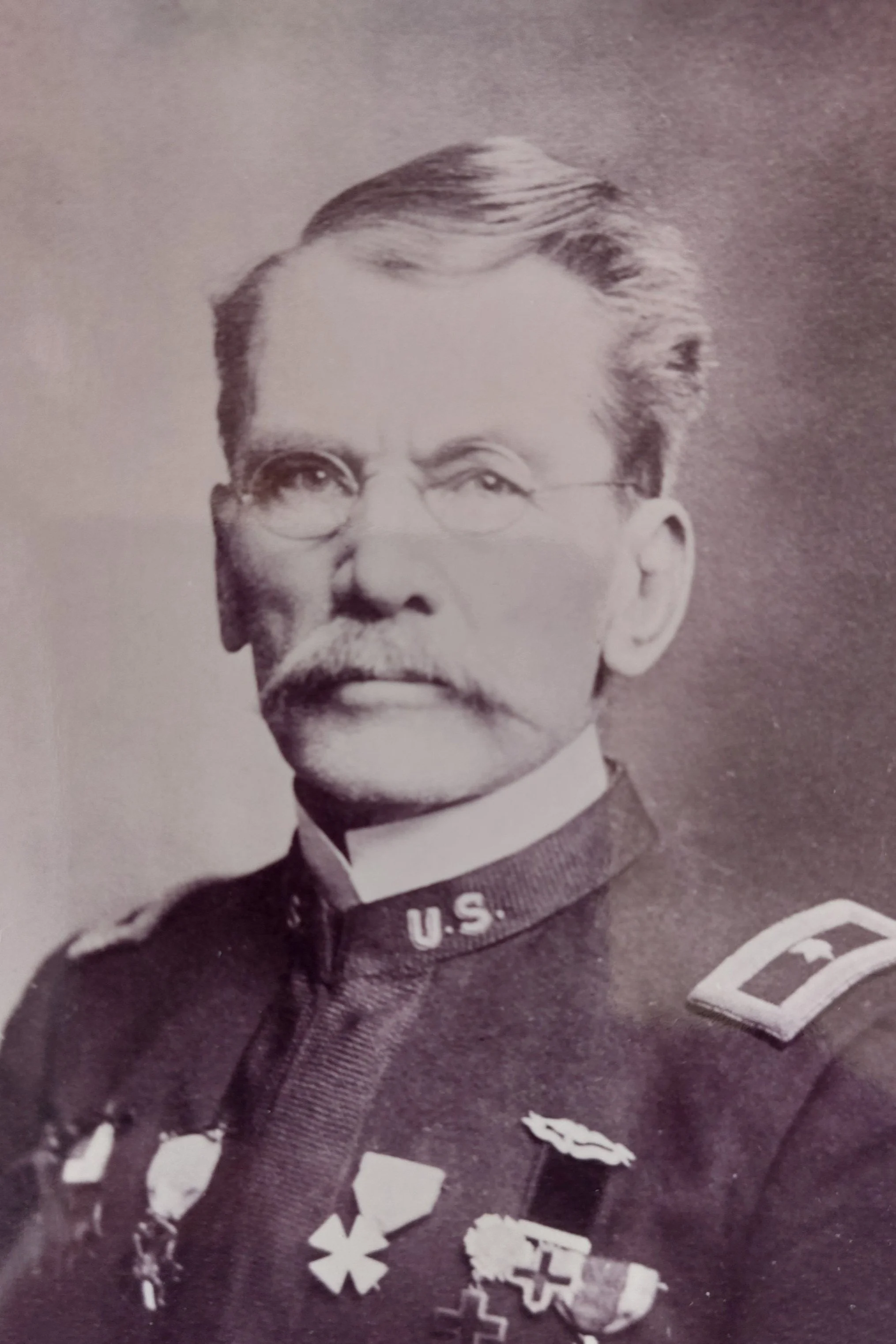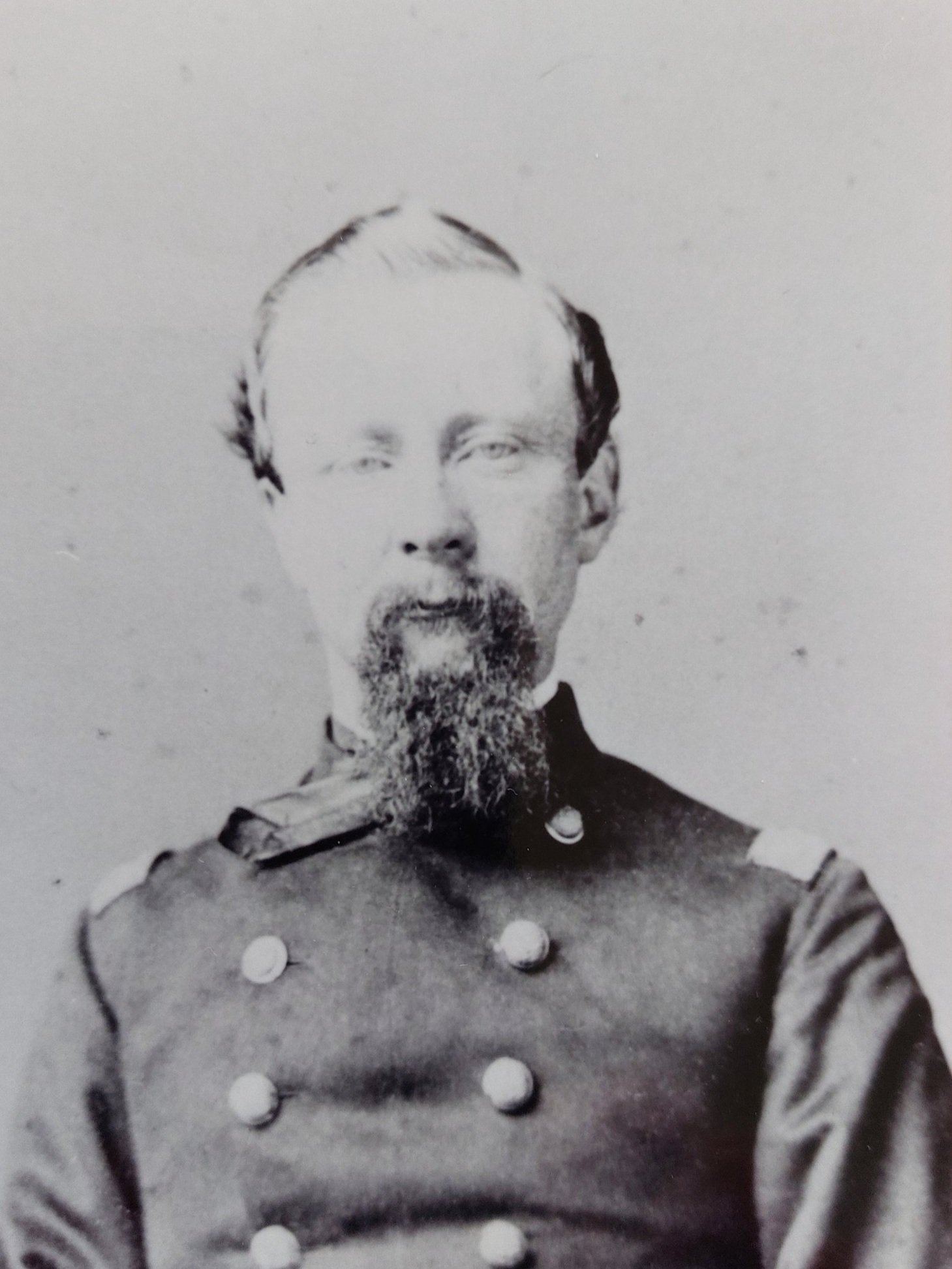“Whatever service the Fifteenth New Jersey Regiment rendered in our great national struggle, whatever honor it reflected upon the State of New Jersey, was due more to Edward L. Campbell than to any other man. His bravery, integrity, capacity, and diligence, stamped the regiment with a character whose value was known in many critical junctures and hard-fought battles”
General Campbell was a man of great leadership and legacy.
The obituary of General Edward L. Campbell was published December 18, 1913 in The Chronicle News of Trinidad, Colorado and described him as “one of the most noted veterans of the Civil War”.
He may have been well-known to the residents of Trinidad in 1913, but such may not be the case today, so the purpose of this discussion is to gain more recognition for him, “the cool, brave Lieut. Col. Gen’l E.L. Campbell” as William H. Penrose described him in Penrose’s letter to the veterans of the 15th New Jersey Volunteers and read at the regiment’s reunion on the 16th anniversary of the battle of Cedar Creek.
VI Corps badge. The VI Corps (Sixth Army Corps) was a corps of the Union Army during the American Civil War and the one to which the 15th New Jersey Volunteers belonged.
General Campbell led the 15th NJ Vol in 30 battles.

Edward Livingston Campbell was born February 2, 1833 near Belvidere, New Jersey to Peter Proctor Campbell and Nancy Jackson Campbell whose father, Eleazar Jackson fought in the Revolutionary War.
To them were born six children: Marshall Silliman, Henry Harrison, Lydia Ann, Mary Emmeline, Eleazer Jackson and Edward Livingston. Both Nancy and Peter, given the times in which they lived, were familiar with war; Peter and Nancy had much to worry about prior to, and during, the Civil War, for they had two other sons in the military. Marshall Silliman was a veteran of the Mexican- American war and Eleazar Jackson, my great-great grandfather, fought with Company C 19th Infantry Wisconsin.
General Campbell was a Brevetted Brigadier who was at the head of the column of the Army of the Potomac when Lee surrendered at Appottomax Court House, and was a Judge Advocate General on George Meade’s staff.
General Campbell was famous—or infamous—as a disciplinarian and as a drill sergeant for which, at first, he was disliked;
In fact, the Sussex Register had this to say of him: “Col. Campbell is not so popular in the regiment as he might be, from the fact that he is disposed to work the men too hard” (qtd. Bilby 45), but his men came to realize that it was this discipline which made the regiments he commanded so effective. Many of his men agreed with a soldier who wrote, “if we ever go into a fight, we want to go under Col. Campbell” (Gottfried 104). During the fall campaign of 1863 and the winter of 1864, Lieutenant Colonel Campbell left the Fifteenth, this time to command the Fourth. Soldier Lucien Voorhees stated:
“We are sorry to be derived…of so valuable an officer. He has won the admiration and good will of his men for his attention to them in camp and undaunted bravery on the field of battle” (148).
With the fall of Fort Sumter in 1861, however, and with the call for 75,000 three-months troops, E.L. Campbell responded by organizing a public meeting on April 18th and was the first to enlist, not only at this meeting but also first among the rest of Warren County.
According to The Biographical Encyclopedia of New Jersey of the 19th Century", his eloquence was "a kind nobly adapted to the occasion and not easily resisted, the result being that a company, with him as its Captain was formed by the next night;...(312), but because the brigade assigned to New Jersey was full, he enlisted in Company D of the First New Jersey Volunteers, rising in rank from private to corporal to sergeant. Governor Olden gave him the authority to raise a three year's company, and Campbell immediately reorganized his first company so quickly that the company was mustered in on May 28, 1861 as Company E of the Third New Jersey Volunteers.
The chaplain of the regiment, Alanson Haines wrote this about General Campbell:
“No body of troops could have gained the honorable record belonging to this regiment without a good commander. There was one man with whom the regiment was always identified; who led it in thirty conflicts; who shrunk from no danger himself; and endured uncomplainingly his share of privation and toil."
Fifteenth Regiment New Jersey Volunteers, 319
Between February 1865 until June 30th, he was Judge Advocate General of the Army of the Potomac, a position he held until the war was over.
In a rather self-effacing way, E.L. stated:
“Immediately after Hatcher’s Run for some reason never known to myself, was detailed as Judge Advocate of the Army of the Potomac on General Meade’s staff and so served until the fighting was over.”
General Campbell is standing in the second row to the far right.

This is how General Campbell described his command and the action of his men at the ‘Bloody Angle'.
The 15th Regiment was positioned on the extreme right of the front line in a drizzling rain. At the order to charge, it dashed gallantly forward with bayonets fixed upon the rebel line....Its line being oblique to that of the enemy, it was compelled to do a half-wheel, under a most murderous fire. Again, it dashed forward, carried the work at the point of the bayonet, and with some actual bayonet fighting, (a very unusual thing), captured a stand of colors and all the rebels who did not fall or run.
The monument was dedicated to these brave New Jerseymen "commanded by Lieutenant Colonel Edward L. Campbell. Engaged 429; Loss 116 killed; 159 wounded; 38 missing.
General Campbell was recognized for his bravery at many battles, including Bloody Angle, Spotsylvania and the Battle of Cedar Creek.
“The grand issue of the Civil War was the right and capacity of man for self-government.”
In his speech to the veterans at the 16th anniversary of the battle of Cedar Creek, General Campbell stated: “Eleven millions of our people became dissatisfied. Let us speak no hard words of them. They were descended from the same patriotic fathers; they were bone of our bone and flesh of our flesh; their country was our country and their God our God….Shall this rebellion be suppressed? This was the question presented in April, 1861. It was not merely the preservation of the Union as so commonly represented. That alone would have been a sacred and sufficient cause….It was not the destruction of slavery as some thought and even yet seem to think. That was one of the results—a grand and glorious result….Many of the best of our people failed to grasp the gravity, the immensity of the crisis….If our National Government could be forcibly rent asunder….it was clear proof to all the world that the great experiment of free government was a failure: that man, after all, was NOT capable of self-government….That the accumulated results of a thousand years of self-sacrifice in the cause of human liberty was to be lost….The grand issue was the right and capacity of man for self-government.”
As on the battlefield, General Campbell faced death with calm, courageous stoicsm. Mr. Yeaman said:
“He lived to the ripe old age of 80 years and he died as he had wished to die, without the helplessness of preliminary sickness which would require attendance upon him. He feared no man nor did he fear death”.

The Hon. R.T. Yeaman continued his reminiscence of General Campbell by writing:
"In his later years he looked forward to the Great Change-to death-with a calm expectation--sometimes almost tinted with wistfulness for the arrival of the appointed hour, feeling that the days of his greatest usefulness here had already run....[he believed that] when we pass through the portal of death we shall find conditions so unexpected from all we had imagined, that amazement will possess us, and as infants, we shall at first be at a loss to understand the change and the conditions of our spiritual existence."
Scholars and students must learn more about him so that this and future generations, will understand what he did for New Jersey, for the Union cause and for democracy.
He may not have been widely known to previous generations, overlooked among so many of the officers who led their men in battle fighting to preserve the Union, but given the recent Sesquicentennial of the Civil War, what better time than this for him to come to the attention of more historians.
Recognition of what General Campbell has done for this country and for democracy-- recognition long deserved and long overdue---is imperative, so historians and America can value what he has done.
General Campbell wrote a book about the American legal system titled
“The Science of the Law”.

Relevant Links

With admiration, respect and devotion for my great-great uncle, General Campbell,
Susan Kapanke
“Those who do not look upon themselves as links connecting the past with the future do not fulfill their duty in the world.” History of the Campbell Family by Henry James Lee



















